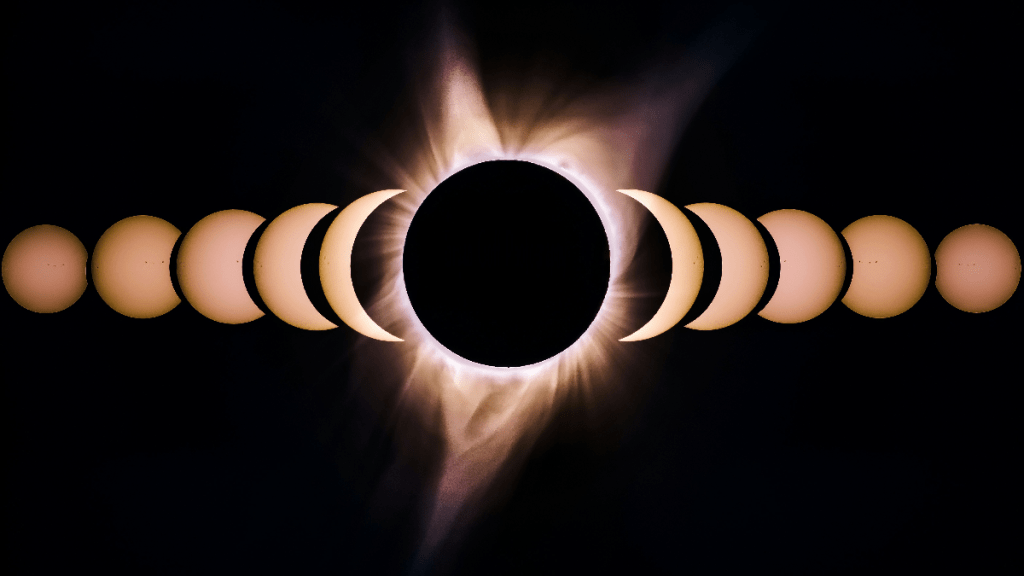We’re only days away from seeing a rare total solar eclipse, which will offer up to four minutes and 23 seconds of striking cosmic views. During that time, you may notice some strange occurrences. Read on to learn more!
1. Radio Waves Will Scramble
If you’re listening to old-school radios during the eclipse, you will likely notice some interference. While it may seem unnerving, NASA says there is a perfectly scientific explanation behind the occurrence.
“This is primarily due to the sudden reduction in solar radiation reaching the Earth’s atmosphere during the eclipse,” the organization wrote in a post. “Since the ionosphere contains charged particles (ions and electrons) and is responsible for reflecting and refracting radio waves, changes to the ionosphere can also affect radio communications and navigation systems.
The changes make it difficult for the radio waves to “propagate” through the ionosphere, which means listeners and users may notice a loss of signal or refraction.
2. Temperatures Will Plunge
Much of the United States will enjoy warm weather on Monday—but bring a coat for the solar eclipse anyway. Most people will feel a downward shift of five to ten degrees as the event nears totality. But the temperature could drop as much as 20 degrees.
According to the National Eclipse, an 88% partial eclipse in 1834 caused the temperature to drop 28 degrees. Much more recently, an eclipse in Zambia led to a 15-degree drop. The reason for the shifts is the same reason nighttime air feels chillier—the absence of the sun.
3. Animals Will Act Bizzare
The quick shift from day to night won’t just confuse the weather. It will also confuse the animals. At the total solar eclipse happens, the birds will abruptly stop singing and the crickets may take over for them. Farm animals could also walk back to their barns thinking it’s time for bed.
Your cats and dogs could also behave strangely, according to Erica Cartmill, a professor of anthropology, animal behavior, and cognitive science at Indiana University. Some pets may just curl up for a nap while others may act anxious. Fortunately, there are simple ways to ease their nerves.
The eerieness created by the wildlife is so striking that NASA is asking people to help them study how the total solar eclipse affects animals by participating in its Eclipse Soundscapes project.
4. Shadows Will Look Otherworldly
Shadows will not act as they normally do during the eclipse. As the event begins, you will see the formation of what’s called shadow bands. These look like the wavy water lines you see at the bottom of pools. Interestingly, NASA hasn’t figured out what causes shadow bands quite yet, but scientists believe it could have something to do with distortions in our planet’s atmosphere.
As the eclipse continues, you’ll notice that the shadows created by trees and other objects will be flecked with crescent shapes. So be sure to take a moment away from the sun to check out these two phenomenons.
5. The Cosmos Will Offer Several Unusual Sights
The moon passing over the sun won’t be the only awe-inspiring sight in the sky during the eclipse. You may also witness solar prominences and Bailey’s beads.
Solar prominences are gorgeous rises in the sun’s surface that will appear as bright pink flower petals behind the moon, and the event will happen near solar maximum, which is when the sun’s activity is at its highest. So the occurrences will be extra spectacular.
Eclipses offer the only opportunity to see Solar prominences with the naked eye—with protective eye gear.
Baily’s beads, named after astronomer Francis Baily, are dots of bright silver lights that line the moon. The phenomenon happens when sunlight plays off the moon’s topography.
You can find the source of this story’s featured image here.
Want to be happier in just 5 minutes a day? Sign up for Morning Smile and join over 455,000+ people who start each day with good news.



